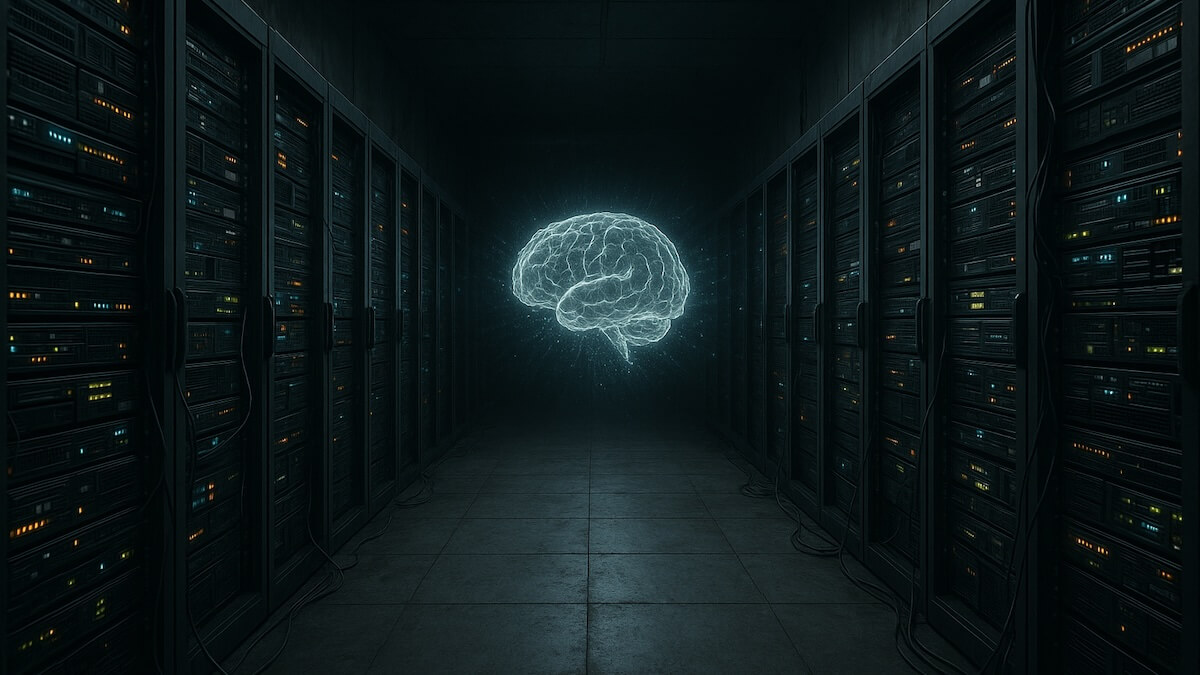The contribution data centers: AI hype endangers climate protection and energy transition from Maria Gramsch first appeared on Basic Thinking. You always stay up to date with our newsletter.

A current Greenpeace study warns that the AI boom endangers climate protection and the energy transition slow down. The reason is the massive energy consumption and the increasing electricity requirements of data centers – with potentially fatal consequences for the environmental goals.
Artificial intelligence is particularly in need of energy. Among other things, this is due to the fact that enormous computing power is necessary for the operation of large AI models and that the systems have to be cooled.
But a lot of electricity is also used when training large voice models. Because the training is based on huge data sets with billions of parameters, some of which go through for weeks at a time.
According to a new study The eco-institute on behalf of Greenpeace could have an impact on the energy transition. Because the enormous energy requirement of AI would endanger climate protection.
Study: This is how AI endangers climate protection and the energy transition
The eco-institute has evaluated more than 95 studies for its investigation. The report “Environmental Impacts of Artificial Intelligence” gives a comprehensive overview of the effects of artificial intelligence on the environment and climate protection.
Accordingly, the electricity consumption of data centers that offer AI-supported services will be eleven times as high in 2030. In addition, greenhouse gas emissions will increase significantly-from 29 million tons of CO2 equivalents in 2023 to 166 million tons in 2030.
And this despite the fact that an increasing proportion of renewable energies have already been incorporated into the calculation. If these figures actually exist in 2030, the CO2 pollution from AI calculating centers would make up almost half of all emissions through data centers worldwide.
Water consumption will also increase significantly
However, the researchers not only included energy consumption and CO2 emissions in their calculation. The enormous water consumption through the use of AI and the production of electronic waste has also been included in the examination.
The amounts of water that is necessary for the cooling of data centers will therefore quadruple by 2030 compared to 2023. If the number was still 175 billion liters worldwide in 2023, it could be 664 billion liters by 2030. It should also be noted that AI calculating centers consume twice as much water as conventional data centers.
The report also suggests that the amount of electronic waste will also increase significantly by 2030. Five million tons are to be added in the next few years through the expansion of AI data centers.
Can AI also support climate protection?
“Artificial intelligence can be a valuable tool for climate protection-if it is operated even climate-friendly,” explains Jonathan Niesel AI expert at Greenpeace. “Without the appropriate expansion of renewables, the high energy consumption threatens a longer dependence on fossil energies.”
The large tech companies such as Google, Amazon, Microsoft and Meta would have committed to climate neutrality by 2030. However, according to Greenpeace, their sustainability reports would currently point in a different direction. “This sabotages the compliance with the climate goals. AI companies have to contribute to the expansion of renewable energies according to their growth.”
Greenpeace therefore demands that companies have to make the consumption of the AI systems transparent. In addition, there must be efficiency standards for data centers and AI applications that must be recognizable by appropriate labels.
Also interesting:
- Energy consumption: How much electricity use electric cars really?
- The development of chatt: a chronology of events
- Artificial intelligence: What are neural networks?
- Prof. Valmed: The first certified medical app with AI in Europe
The contribution data centers: AI hype endangers climate protection and energy transition from Maria Gramsch first appeared on Basic Thinking. Follow us too Google News and Flipboard.
As a Tech Industry expert, I am concerned about the impact of AI hype on climate protection and energy transition in data centers. While AI technologies have the potential to improve efficiency and optimize operations in data centers, the rapid deployment of AI without proper consideration for its energy consumption can have negative consequences for the environment.
Data centers are already significant consumers of energy, and the increasing use of AI algorithms that require large amounts of computational power can further exacerbate their carbon footprint. This not only undermines efforts to reduce greenhouse gas emissions but also hinders progress towards a more sustainable and renewable energy transition.
It is crucial for data center operators and technology companies to prioritize energy efficiency and environmental sustainability in their AI deployments. This can be achieved through the use of energy-efficient hardware, optimization of algorithms, and implementation of renewable energy sources to power data centers.
Furthermore, industry standards and regulations should be developed to ensure that AI technologies in data centers are deployed in a responsible and environmentally conscious manner. By taking proactive measures to address the energy consumption of AI in data centers, we can mitigate the impact of the technology on climate change and support a more sustainable future for the tech industry.
Credits